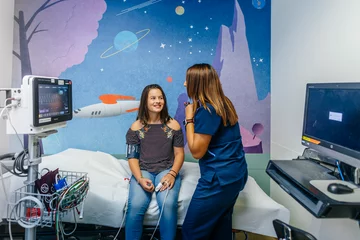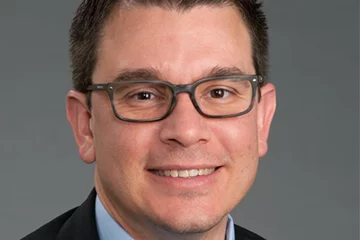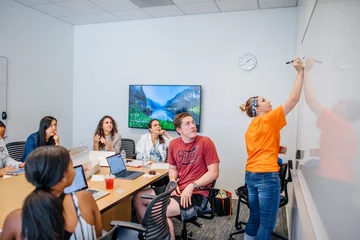Making Sense of the MMI Interview
Compassion, dedication and leadership are desirable qualities in an aspiring physician, but are not always apparent from a prospective medical student's application or during a traditional one-on-one interview. To better identify if a candidate will be a good fit for the David Geffen School of Medicine at UCLA (DGSOM)—and vice versa—the school conducts a multiple mini interview, or MMI, approach as part of its admissions process.
(Related Article: Your Medical School Interview - What to Expect)
What Is MMI?
Originally developed by McMaster University in 2001, and was formally adopted in 2004, the MMI format has applicants rotate through a series of "stations" at which they answer or respond to various questions, scenarios and tasks they will likely encounter in healthcare. Unlike a non-standardized interview, the MMI interview compels interviewers to rate a candidate without immediate access to his or her academic file—an approach proponents believe helps to prevent biases from developing.
The MMI at DGSOM, in particular, tailors the details of the process to its own needs and specialties, focusing on behavioral and situational questions that challenge interviewees to consider how they have reacted or would react in different scenarios. "You might be asked to recount a time in the past when you had to act under pressure, or be asked how you might respond to a stressful circumstance in the future," explains Theodore Hall, MD, Associate Dean for Admissions at DGSOM. "You might also be placed in a situation with a third party that requires you to demonstrate teamwork or conflict resolution."
Value Added
At DGSOM, Dr. Hall and his colleagues have taken advantage of the MMI format to evaluate prospective students who share the school's ideals and mission. This includes a commitment to compassionate and ethical care, public health and lifelong learning.
"The MMI allows us to recruit the type of applicants that have the attributes we want in future physicians," says Dr. Hall. "At the same time, the process gives candidates a richer understanding of our values, so that they leave the interview more likely to want to attend DGSOM."
This is a powerful tool, allowing both an interviewer and interviewee to determine whether or not they're a good match. Of course, to provide a full picture of an applicant's skills and personality, DGSOM follows the MMI with a traditional one-on-one interview.
Looking Ahead
With the MMI interview method in its eighth year at DGSOM, Dr. Hall says the approach has come to benefit the institution and students alike: unpublished data suggests a positive correlation between MMI results and markers of academic success, such as verbal reasoning scores and grade point average. To further study the advantages of the multiple mini interview, DGSOM recently began participating in a multi-institution assessment of various admissions practices.
Meanwhile, Dr. Hall offers some guidance for applicants facing the pressure of an MMI interview: "The best way to prepare for the MMI is the same approach you take to preparing for a career in medicine," he states. "Your experiences in research, community outreach and academia help prime you for the MMI, just as they help you become an exceptional physician."




